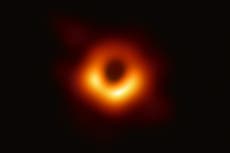Nobel Prize in Chemistry 2020 awarded to scientists who developed ‘a tool for rewriting the code of life’

The Nobel Prize in Chemistry has been awarded to the scientists who developed “genetic scissors” that can change DNA.
Praising the researchers for their work in creating “a tool for rewriting the code of life”, the 2020 prize went to Emmanuelle Charpentier and Jennifer A Doudna, who will share the award.
Together, they helped create the genetic scissors known as CRISPR/Cas9, which can be used to precisely edit the DNA of animals, plants and microorganisms.
The full implications of the discovery are still being examined, even years after it was first discovered. Though the genetic scissors have already been used with revolutionary effect in cancer and other research, researchers have suggested that future breakthroughs could bring the ability to snip out inherited diseases ands cure them.
“There is enormous power in this genetic tool, which affects us all. It has not only revolutionised basic science, but also resulted in innovative crops and will lead to ground-breaking new medical treatments,” said Claes Gustafsson, chair of the Nobel Committee for Chemistry, in a statement.
"The ability to cut the DNA where you want has revolutionised the life sciences," Pernilla Wittung Stafshede, member of the academy of sciences, told reporters.
Charpentier, who is French, and Doudna, an American, are the sixth and seventh women to win a Nobel for chemistry. They follow pioneers such as the first ever woman to win the prize, Marie Curie, who was given the chemistry prize in 1911 after jointly winning for physics in 1903.
The discovery of the genetic scissors began somewhat by accident. Charpentier was examining one of the world’s most harmful bacteria, Streptococcus pyogenes, when she came across an unknown molecule called tracrRNA, and found that it is able to cut into DNA.
She published that work in 2011, and began to work with Doudna, an expert in RNA. They together recreated the bacteria’s genetic scissors artificially, and simplified the components so they could be used more easily.
After that, they were able to reprogramme the scissors. That meant they could be controlled and directed at specific DNA molecules, allowing for the rewriting of the code of life and in turn opening up a variety of possible uses.
Since they were first discovered in 2012, the genetic scissors are being used in a host of ways, from creating plants that can withstand threats to new cancer therapies.
The two researchers will share the prize of 10 million Swedish kronor, or roughly $1.1 million.
Join our commenting forum
Join thought-provoking conversations, follow other Independent readers and see their replies
Comments
Bookmark popover
Removed from bookmarks